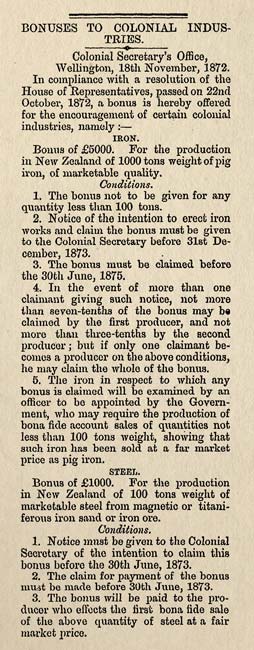
The government offered bonuses for iron and steel in 1872, but it proved difficult to extract iron ore from ironsand, the most abundant raw material in New Zealand. Almost a century later, state-funded research finally resolved the technical problems. The government set up New Zealand Steel, retaining 25% of shares in the business. In the 1980s the government funded a substantial extension of New Zealand Steel’s Glenbrook mill, costing almost $2 billion, and increased its shareholding in the business to 89%. Later that decade the company, whose markets were no longer protected from competition, was sold to private interests for $300 million.
Using this item
National Library of New Zealand, Papers Past
Reference:
Wellington Independent, 20 November 1872, p. 2
Permission of the National Library of New Zealand, Te Puna Mātauranga o Aotearoa, must be obtained before any re-use of this image.







Add new comment